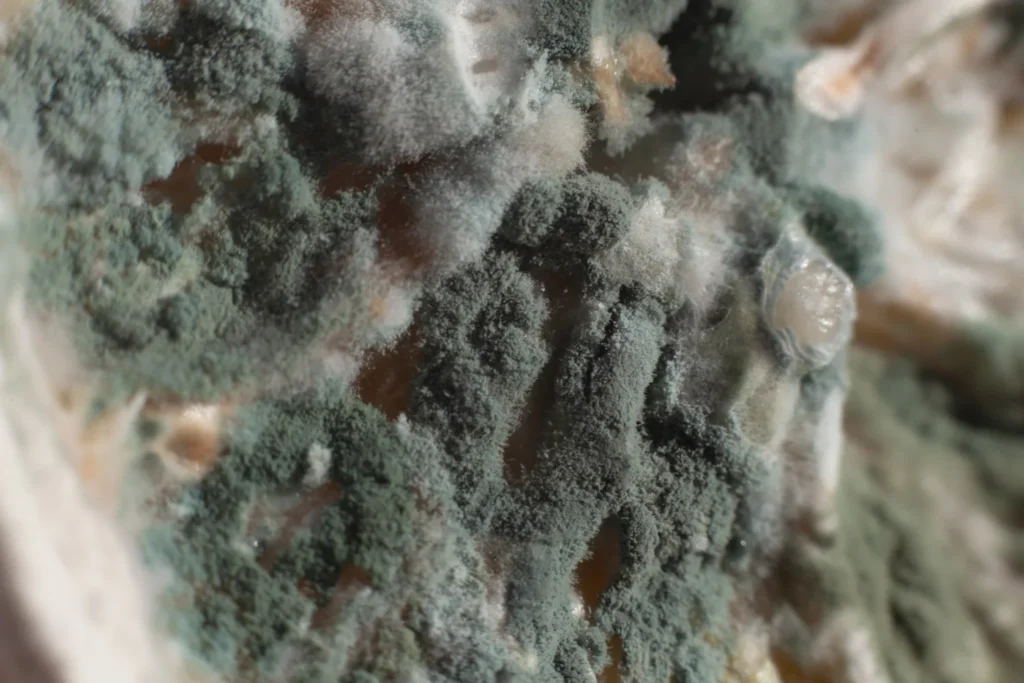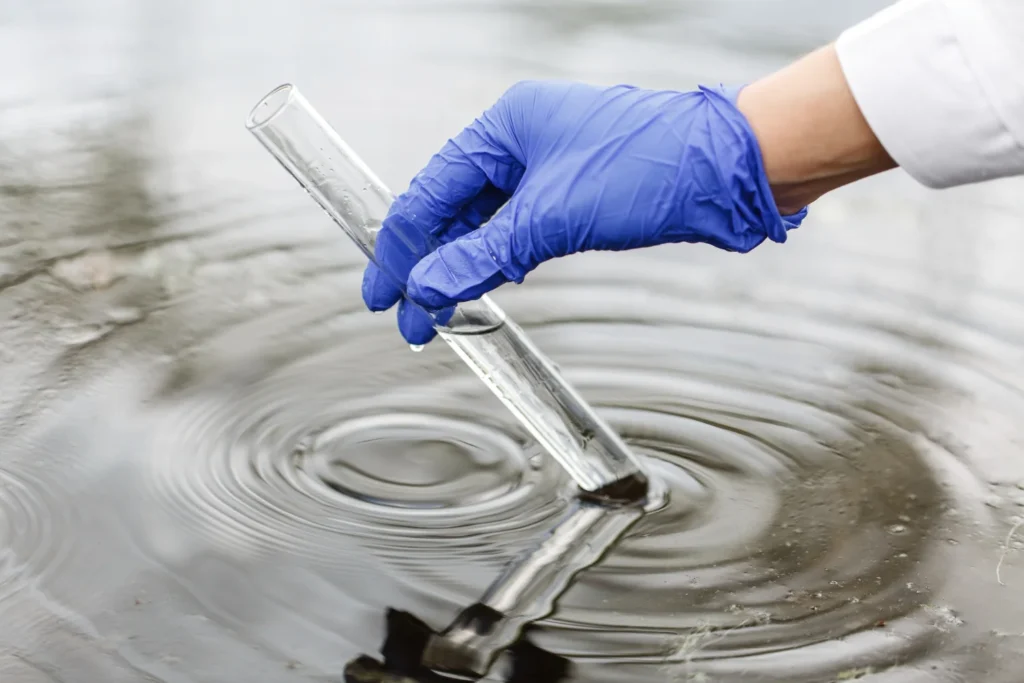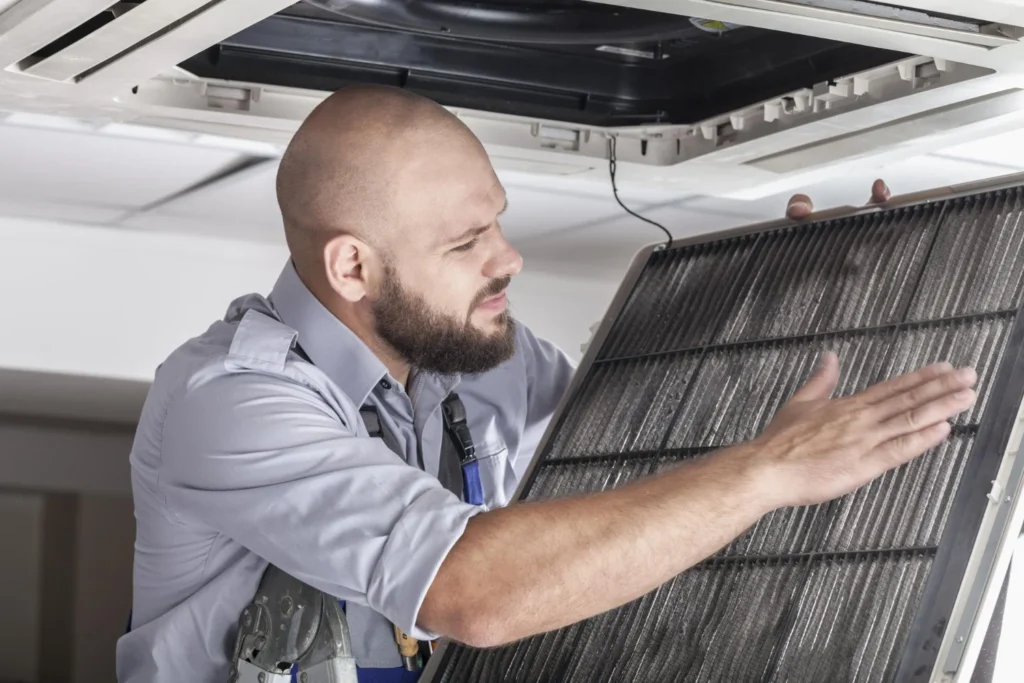Window Mold Testing Services in Florida
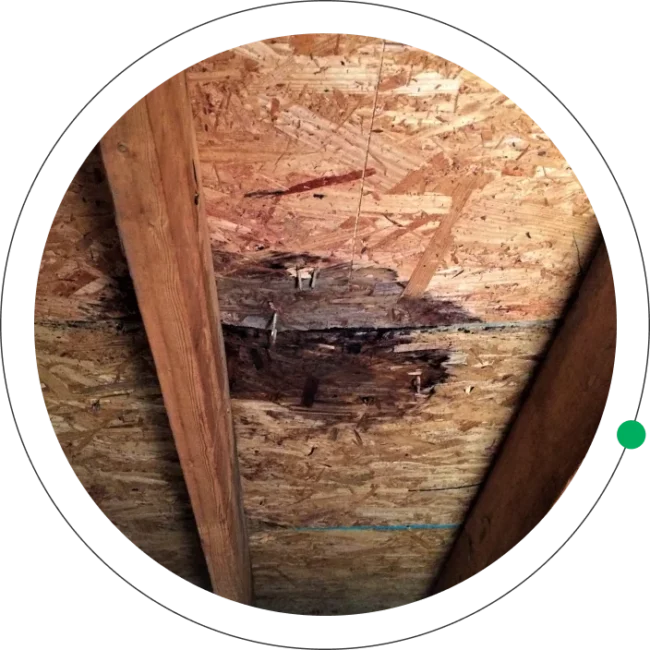
Why Windows Are Prone to Mold Growth and the Need for Mold Testing
Windows are prone to mold growth due to their exposure to moisture from both indoor and outdoor sources. Condensation often forms on windows, especially in areas with high humidity or significant temperature differences between the inside and outside. This moisture can accumulate on window sills and frames, creating a damp environment ideal for mold spores to thrive. Additionally, windows are frequently exposed to rain and can develop leaks if not properly sealed, allowing water to seep in and promote mold growth. Poor ventilation around windows can exacerbate the problem, as stagnant air prevents the area from drying out, further increasing the likelihood of mold formation.
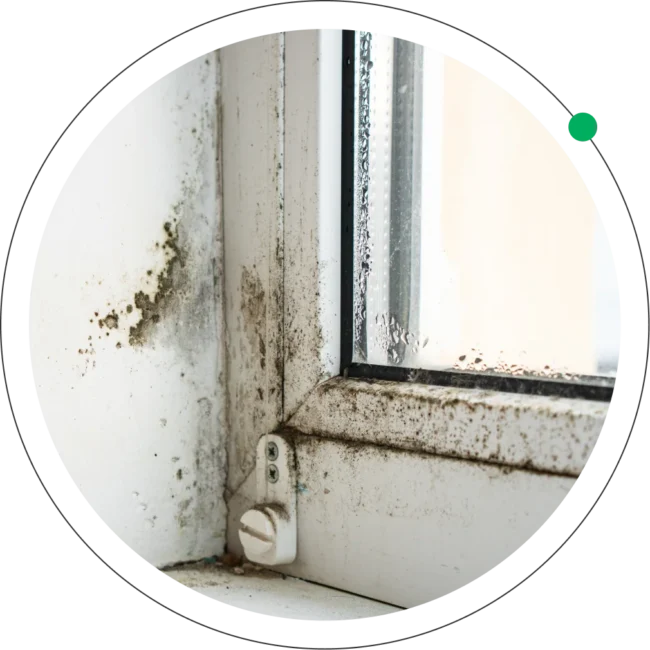
Indications That Your
Windows Need Mold Testing

Visible Discoloration
Black, green, brown, or white spots or patches on the window glass, frames, or sills.

Musty Odor
A persistent, unpleasant musty smell near the windows.

Condensation
Frequent condensation on window panes and frames, especially in colder weather.

Warped or Damaged Frames
Warping, cracking, or peeling paint on window frames, indicating moisture issues.

Stains or Water Damage
Stains or discoloration on walls or sills near windows, suggesting past or ongoing water intrusion.

Health Symptoms
Increased allergic reactions, respiratory issues, or skin irritation among occupants, particularly when near the window area.

Mildew on Curtains or Blinds
Growth of mold or mildew on window treatments like curtains, blinds, or shades.

Soft or Rotted Wood
Wood window frames or sills that feel soft, spongy, or show signs of rot, indicating prolonged moisture exposure and mold growth.
How to Spot Window Mold: Expert Tips and Mold Testing
- Look closely at the window panes, frames, and sills for any discoloration or mold spots, which can appear black, green, brown, or white.
- Regularly check for condensation on the window glass and frames, as persistent moisture is a strong indicator of potential mold growth.
- A musty or earthy smell around the windows is a common sign of mold presence. If you notice this odor, inspect the area thoroughly.
- Inspect curtains, blinds, and shades for any signs of mold or mildew, as these can absorb moisture and harbor mold.
- Check for any stains, discoloration, or signs of water damage on walls, sills, or the surrounding areas near the windows.
- If the window frames or sills are made of wood, check for softness, sponginess, or signs of rot, which indicate prolonged moisture exposure and potential mold growth.
- Consider using a mold testing kit or hiring a professional for an in-depth inspection.
Regularly inspecting your Window Mold
and maintaining proper ventilation, insulation,
Regular maintenance, immediate attention to spills and leaks, and ensuring proper ventilation can help prevent mold growth in carpeted areas.
Prevent Window Mold:
Essential Tips and Mold Testing for a Mold-Free Home
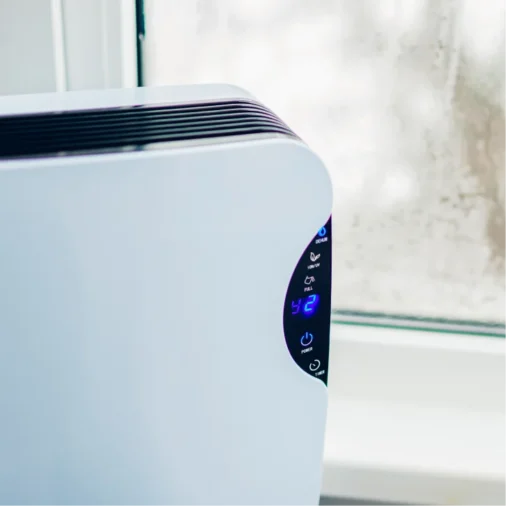
Control Humidity Levels
- Keep indoor humidity below 60%, ideally between 30-50%, by using dehumidifiers or air conditioners.
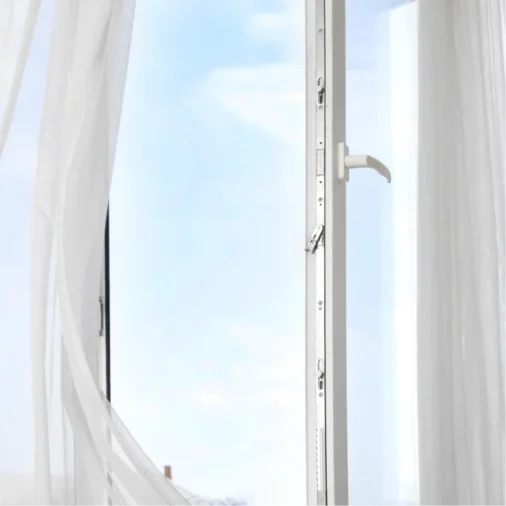
Ensure Proper Ventilation
- Use exhaust fans in bathrooms, kitchens, and laundry rooms to reduce moisture levels.
- Open windows periodically to improve air circulation.
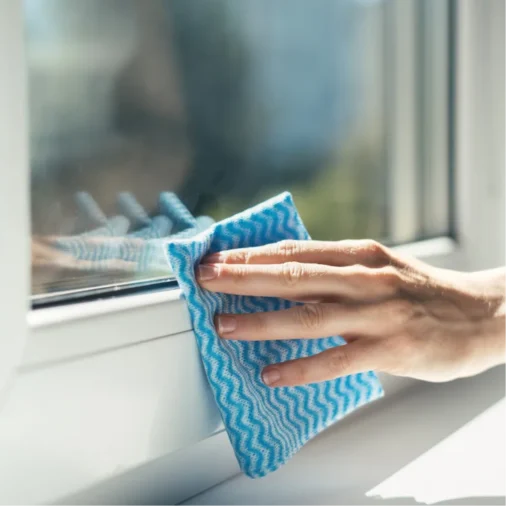
Wipe Away Condensation
- Regularly wipe away condensation from windows to prevent moisture buildup.
- Use a squeegee or absorbent cloth.
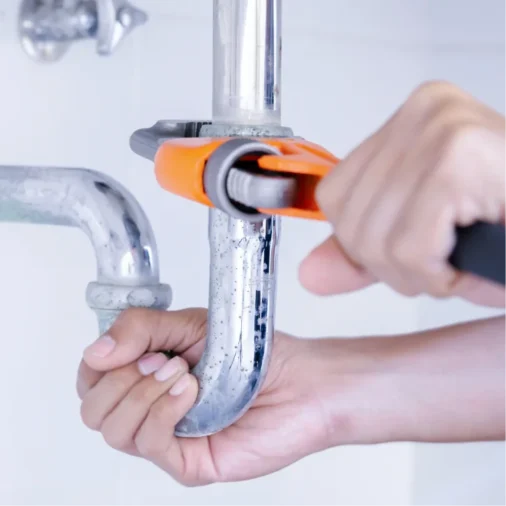
Fix Leaks Promptly
- Repair any leaks in windows, roofs, or walls immediately to prevent water accumulation and mold growth.
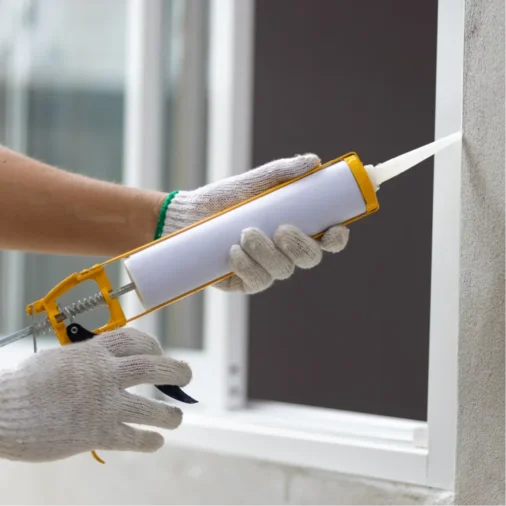
Seal Windows Properly
- Ensure windows are well-sealed and caulked to prevent water from seeping in during rain or storms.
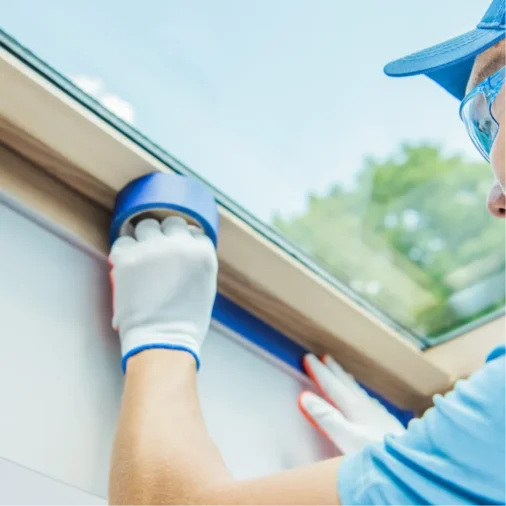
Use Mold-Resistant Products
- When renovating, consider using mold-resistant paint or sealants on window frames and sills.
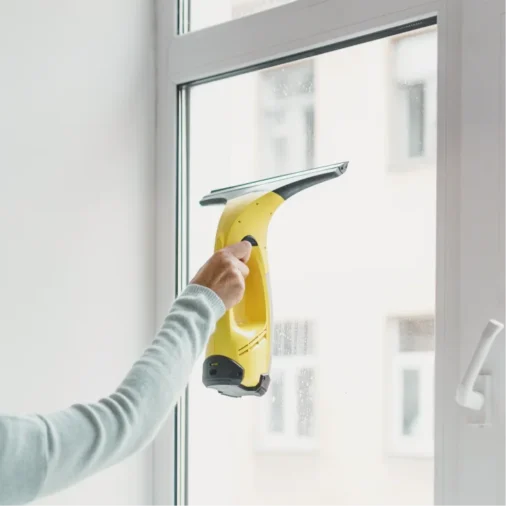
Keep Windows Clean
- Regularly clean windows, frames, and sills with a mold-killing solution to remove any mold spores.
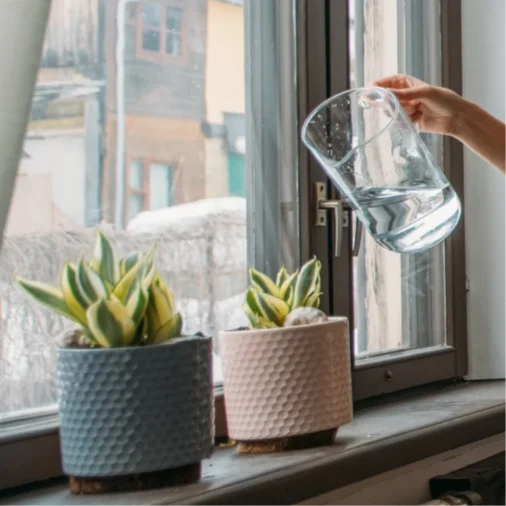
Avoid Overwatering Plants
- Be cautious when watering indoor plants near windows to prevent excess moisture from accumulating on sills and frames.
Choose ETA for Expert Mold Testing
Ensure your garage is safe and mold-free with ETA’s expert mold testing services. With our commitment to accuracy, efficiency, and customer satisfaction, you can trust us to deliver comprehensive assessments and actionable insights. Don’t wait until it’s too late—choose ETA to protect your health and property. Contact us today to schedule a professional mold inspection and take the first step towards a healthier, safer space.
Professional Mold Inspection & Air
Quality Testing Services in South Florida.
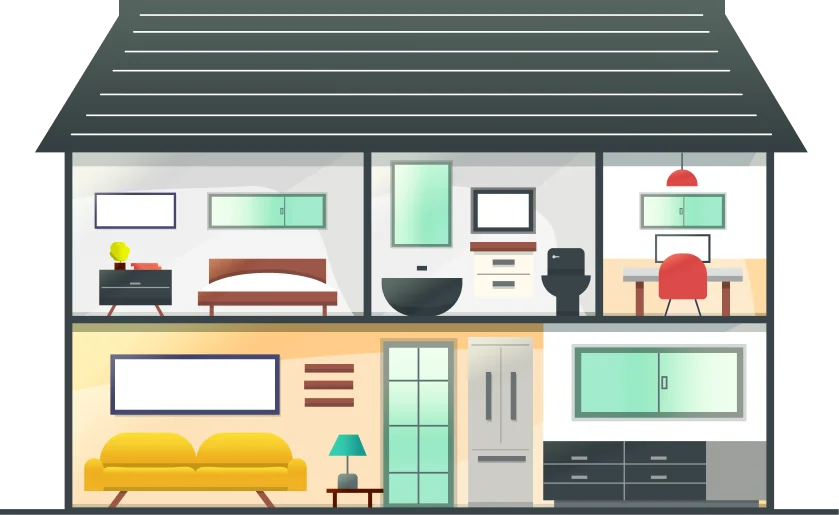
The Mold Inspection Process

DETECTION
We’ll discover the source of infrastructure damage. This is imperative and also the first step in our process.

TESTING
We send all samples to an accredited laboratory. Our labs know this is our priority and will give the most detailed results possible.

ASSESSMENT
Our certified and licensed assessors will compile a comprehensive report providing our documentation and lab analysis. All information comes with a scope of work.

Why Choose Environmental
Testing Agency?
Our team is comprised of industry-certified experts with extensive knowledge and experience in environmental testing. We utilize the latest technology and methodologies to ensure accurate and reliable results, making us leaders in the field.
Expertise
We are committed to providing exceptional customer service. Our team is responsive, thorough, and dedicated to assisting clients through every step of the testing process. We prioritize clear communication and tailored solutions to meet your specific needs.
Customer Service
Quality is at the core of everything we do. From rigorous testing procedures to detailed reporting, we ensure that all services meet the highest standards. Our commitment to quality helps clients make informed decisions based on dependable data.
Quality
Licensed, Certified,
and Insured Mold Inspection
and Air Quality Testing Company.

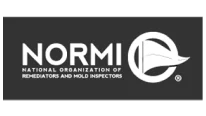



Before Booking an Air Quality Test
and Mold inspection Services
Receive $50 off!

Window Mold FAQ’S
Yes, black mold can be pretty harmful. It produces mycotoxins that might cause serious health problems, especially for those with asthma, allergies, or weakened immune systems. If you suspect you have black mold, it’s important to address it quickly.
Finding mold between window panes usually means there’s moisture trapped inside the window seal. While it might not be an immediate health risk, it can lead to issues like window damage and reduced insulation. If you notice this, it’s a good idea to call in a professional.
Yes, mold on windows can make you feel unwell. Exposure can lead to respiratory issues, skin irritation, and allergy-like symptoms. People with asthma or compromised immune systems should be especially cautious.
Look out for signs like discoloration, fuzzy growths, or dark spots on your window frames and sills. A musty smell near your windows can also be a sign of mold. If you notice your allergy symptoms flaring up at home, it might be time to check for mold.
To keep mold at bay, regularly clean your windows, improve ventilation, and try to keep humidity below 60%. Make sure to check for leaks, seal any gaps, and consider using mold-resistant products during renovations.
Yes, mold can grow on window screens, especially if they are damp or in a humid environment. Regularly cleaning your screens and ensuring they dry completely can help prevent mold growth.
It’s a good idea to get your windows inspected for mold at least once a year, especially in humid places like Florida. If you notice any signs of mold or feel like humidity is increasing, you should consider scheduling an inspection sooner.
Mold can start growing within 24 to 48 hours if there’s enough moisture. So, if your windows are often damp or you’ve had leaks, it’s important to check for mold regularly.
The best way to clean mold off window sills is to use a mix of water and dish soap or a commercial mold cleaner. Scrub the affected area with a soft brush or cloth to remove all visible mold. After cleaning, make sure to dry the area completely to prevent mold from returning. If the mold keeps coming back or covers a large area, you might want to seek professional help.
Yes, some windows are more likely to develop mold, especially those with poor insulation or older wooden frames. Single-pane windows often don’t insulate well, which can lead to condensation and mold. While vinyl and aluminum frames are generally more resistant, they can still trap moisture if not maintained properly. Regular inspections can help catch any potential problems early.
Areas We Serve
In Florida
1. Miami Dade
- Coral Gables
- Coconut Grove
- Miami Beach
- Star, Palm & Hibiscus Island
- Key Biscayne
- Keystone Islands
- San Souci
- Miami Shores
- Pinecrest
- Brickel
- Bal Harbor
- Bay Harbor Islands
- Indian Creek
- Surfside
- Eastern Shores
- Sunny Isles
- Aventura
- Golden Isles
- Golden Beach
- The Roads
2. Broward
3.Palm Beach
- Royal Palm Beach
- Lake Worth
- Lantana
- Boca Raton
- Boynton Beach
- Manalapan
- Singer Island
- South Palm Beach
- North Palm Beach
- Tequesta
- Highland Beach
- Ocean Ridge
- Country Club Acres
1. Miami Dade
- Coral Gables
- Coconut Grove
- Miami Beach
- Star, Palm & Hibiscus Island
- Key Biscayne
- Keystone Islands
- San Souci
- Miami Shores
- Pinecrest
- Brickel
- Bal Harbor
- Bay Harbor Islands
- Indian Creek
- Surfside
- Eastern Shores
- Sunny Isles
- Aventura
- Golden Isles
- Golden Beach
- The Roads
2. Broward
- Bonaventure
- Hallandale
- Miramar
- Hillsboro Beach
- North Lauderdale
- Coconut Creek
- Hollywood
- Sea Ranch Lakes
- Oakland Park
- Sunrise
- Coral Springs
- Parkland
- Dania
- Lauderdale By The Sea
- Pembroke Park
- Tamarac
- Davie
- Pembroke Pines
- University Park
- Deerfield Beach
- Plantation
- Weston
- Fort Lauderdale
- Lighthouse Point
- Pompano Beach
- Wilton Manors
3. Palm Beach
- Royal Palm Beach
- Lake Worth
- Lantana
- Boca Raton
- Boynton Beach
- Manalapan
- Singer Island
- South Palm Beach
- North Palm Beach
- Tequesta
- Highland Beach
- Ocean Ridge
- Country Club Acres
- Jupiter
- Palm Beach
- Jupiter Inlet Colony
- Palm Beach Gardens
- Wellington
- Jupiter Island
- Palm Beach Shores
- Delray Beach
- Palm Springs
- Lake Clarke Shores
- Pelican Lake
- West Palm Beach


